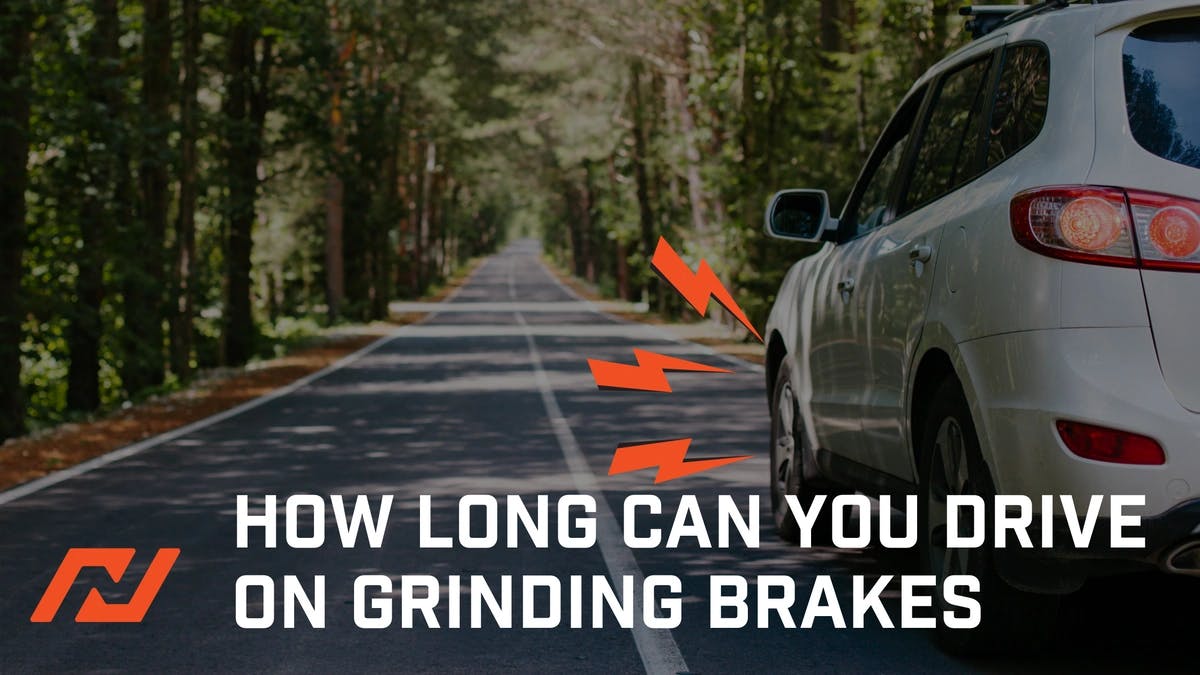As car owners, we may have experienced the unsettling sound of grinding brakes at one point or another. It’s a sound that can cause anxiety and raise numerous questions in our minds, including how long we can continue driving on them.
Driving on grinding brakes can put you and your passengers at risk, as well as cause potential damage to your car’s brake system. In this section, we will provide you with the information you need to know about how long you can drive on grinding brakes, and why it’s important to address the issue promptly.
But before anything else, here’s a list of what you should know:
-
Grinding brakes are a warning sign of worn brake pads or other brake system issues.
-
Driving on grinding brakes can cause further damage to the brake system and reduce stopping power.
-
It’s important to seek professional brake repair as soon as possible to ensure your safety on the road.
How long can you drive on grinding brakes?
You shouldn't drive at all with grinding brakes. Get it fixed immediately. Every mile risks more damage and reduces safety. It is essential to identify and resolve the underlying cause to ensure proper brake function.
What are the Causes of Grinding Brakes?
You know how frightening it may be to hear a loud grinding noise coming from your brakes. The sound of metal grinding against metal is not only annoying, but it might also indicate a significant problem.
In this part, we'll look at the many reasons for grinding brakes to help you figure out what's going on.
-
Worn brake pads are one of the most prevalent causes of grinding brakes. When the pads wear down, the metal backing might make contact with the rotor, resulting in a grinding noise. If left unchecked, this can cause rotor deterioration and, eventually, braking failure.
-
A bad rotor is another source of grinding brakes. The rotor is the metal disc against which the brake pads press to stop the vehicle. If the rotor becomes deformed, the brake pads will rub unevenly against it, resulting in a grinding noise.
-
Brake system problems can potentially cause grinding brakes. A jammed caliper, for example, can cause the brake pads to wear unevenly, resulting in a grinding noise. Furthermore, debris or grit in the brake system might cause the brakes to grind.
It's crucial to know that ignoring grinding brakes might cause more harm to your brake system and jeopardize your driving safety. If you hear a grinding noise coming from your brakes, have them tested by a professional as soon as possible to establish the source of the issue.
The Potential Consequences of Driving on Grinding Brakes
It can be tempting to continue driving on grinding brakes, especially if you're on a tight budget or have a busy schedule. However, doing so can have serious consequences for both your safety and the health of your vehicle.
-
Damaged Brake System Components
The cause of grinding brakes is usually worn brake pads, which means the pads have lost their friction material and are no longer effective at stopping the vehicle. When you continue to drive with worn brake pads, it can damage other components of the brake system, such as the rotors and calipers. This can lead to more expensive repairs down the road and even complete brake failure.
-
Risk of Accident
Continuing to drive with grinding brakes can compromise your ability to stop the vehicle quickly, increasing the risk of an accident. Additionally, if you wait too long to address the issue, you may need to replace more than just the brake pads, leading to higher repair costs.
Seek Professional Brake Repair Service Now
Even while it could seem appealing to try to repair your brakes on your own to save money, it's crucial to understand when it's required to call a professional.
When your brakes begin to grind, it is obvious that something is wrong with your brake system and it has to be fixed. Ignoring the issue could result in long-term brake system degradation that is unsafe and expensive.
If there are problems with the brake caliper, that may also be a clue that you need brake repair. Your brakes may not operate as effectively as they should if the caliper is not functioning properly because it is in charge of squeezing the brake pads against the rotor. The caliper may be fixed or replaced by a mechanic, who can also make sure that your brakes are operating properly.
Overall, it is recommended to take your car to a qualified mechanic who can identify and fix the problem if you think your brakes aren't working properly. You run the risk of endangering yourself and your car if you try to remedy the issue yourself.
Maintain your brakes and take care of any problems as soon as they arise.
Let NuBrakes assist you right now!
